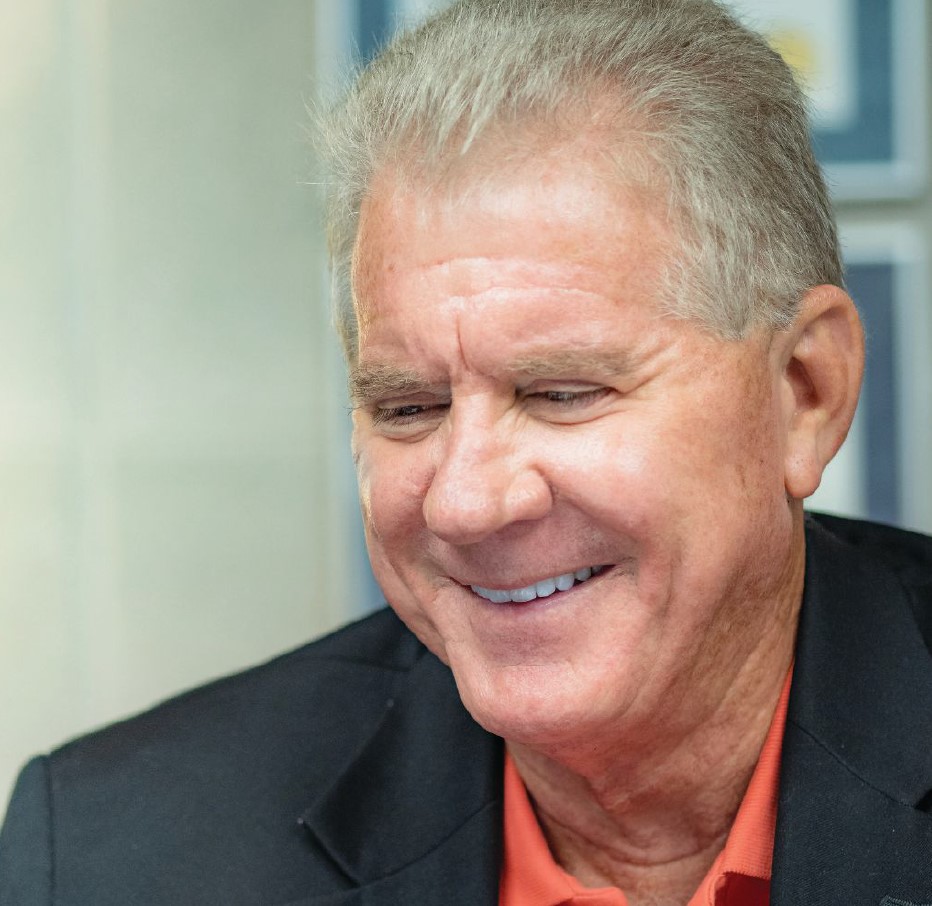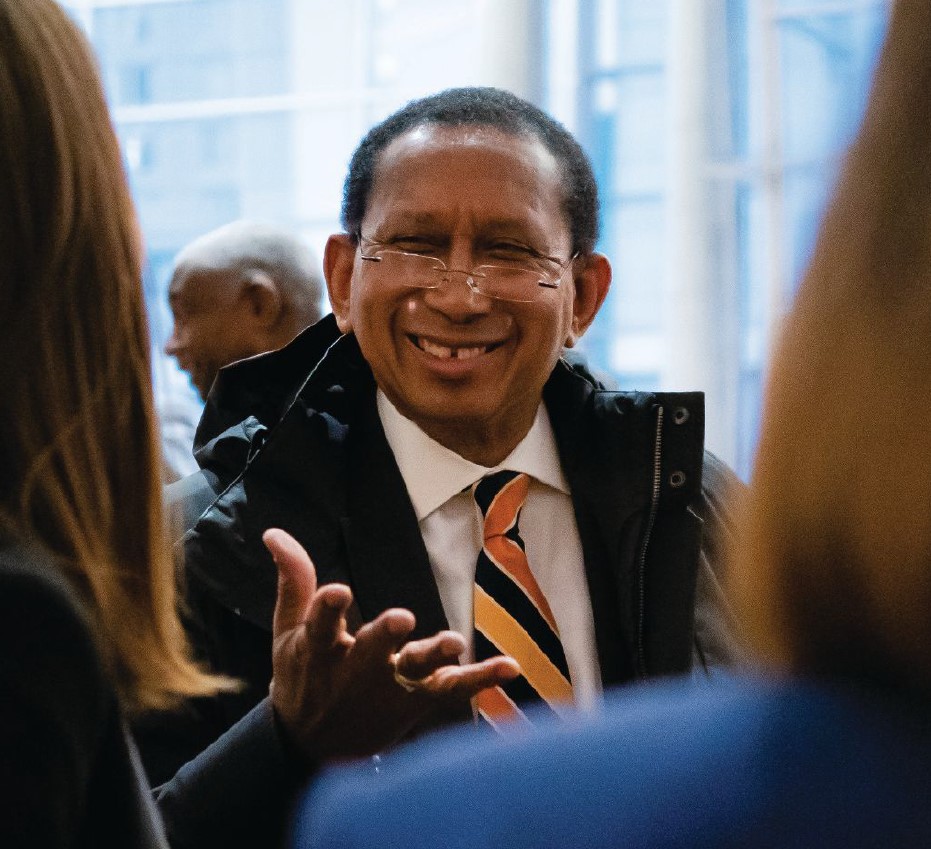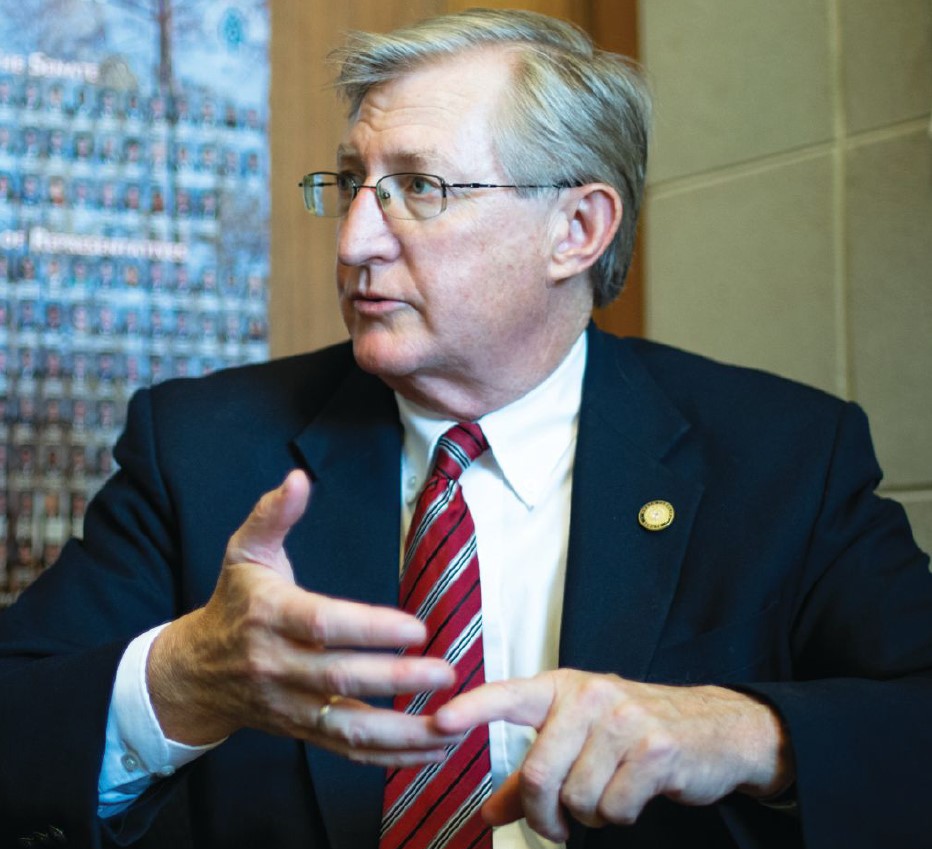Potholes don’t vote.
Go to enough municipal board meetings and odds are you’ll hear someone, at least once, remind us. At the municipal level are daily maintenance and development issues accomplished generally without relevance to partisan filters or camps. Of course that’s partly to do with the fact that the vast majority of governing boards in North Carolina’s cities and towns are nonpartisan. Candidates are typically elected on their records or perspectives on issues specific to the locale. There may be partisan tones, but they’re not the song.
It’s different at the state legislative level, where a candidate’s party (if so affiliated) is listed on the ballot. Elected members attend party caucus meetings, in which each side works out thoughts on bills. Partisan divides and caucus consensus can lead to party line votes on bills riding through on majority-party sponsors.
But there is at least one entity working a specifically municipal eye within the legislature. The Joint House/Senate Municipal Caucus comprises former mayors and other city and town officials now serving in the N.C. General Assembly.

“I think you find that people that have municipal experience for the most part are here for the right reason. I just call it good, transparent government,” said Rep. Steve Ross, the former mayor and city council member from Burlington. In his view, the closest-to-the-people, nonpartisan spirit that people in municipal government experience tends to follow them.
The Municipal Caucus, which formed in 2015, began the 2019-2020 session of the General Assembly with more than 30 members between the House (22) and Senate (nine), Representative Ross among them.
“The mission of the (Municipal) Caucus is to create an opportunity and open environment for legislators who are former mayors, city council representatives, attorneys or employees to offer education about the state-city partnership, and to share information and ideas about legislation that will impact city government,” states a letter that Representative Ross co-signed as caucus co-chair. “Active participation by caucus members will bring greater awareness to the decisions made at the state level and how they will practically affect services to citizens at the city level.”
Both sides of the aisle participate with common ground in the facts about cities and towns. The League also speaks with the caucus to communicate up-to-date news and context that could improve legislation.

“It gives you a familiarity and knowledge about those issues that uniquely impact municipalities,” said Floyd McKissick, who until recently served in the Senate, co-chairing the caucus, and previously served on the Durham City Council. “So you go in there, you’re aware of the issues that they have to deal with regularly, you’re aware of the limitations that they had. You’re aware of, more importantly, what it takes to get things done at the local level and how they can be unduly impacted by policies adopted at the state level.”
Representative Ross said that when he first entered the legislature, in 2013, he fully expected a noticeable number of fellow lawmakers to have come from municipal government backgrounds, town hall being the closest opportunity to absorb government experience before eyeing higher office if desired. General Assembly members come from myriad expertise and professional backgrounds, but the lack of municipal knowledge leaves potential for unintended or unnecessary consequences for North Carolina’s communities.
The Municipal Caucus meets to make sure the relevant but perhaps lesser-known points and nuances are covered – municipalities have a lot in common, but are far from contextually uniform – and can be cohesively communicated for good lawmaking.
The caucus isn’t to be confused with a legislative committee, which can advance or deny approval to bills when the General Assembly is in session. But the caucus does work on legislation, in a primary case assembling various municipal matters into an omnibus bill. Last biennium, Municipal Caucus leaders presented to a House committee a municipal omnibus bill that sought to change eight different areas of state law to cut red tape and increase efficiency for cities and towns. The bill passed that full chamber unanimously.
The caucus also reviews other bills with implications for or direct relevance to cities and towns. In the last biennial session, for example, Rep. Josh Dobson presented the committee with a League-supported bill he sponsored that sought to provide local governments the ability to set up public-private partnerships expanding broadband access, a key legislative goal for cities and towns, such a major force in the state’s job creation and overall economy.

“So many people throughout North Carolina are impacted by their municipal government,” said caucus co-chair Sen. Ted Alexander, whose past roles include mayor of Shelby and executive director of the city’s Main Street Program. (He oversaw the program in Bedford, Va., too.)
“There are 540-some municipalities in North Carolina,” he noted. “As a conservative, we always believe the government closest to the people is always best. So these municipalities serve as a real strong and vibrant link to the citizens that we represent (in the legislature).”
Senator Alexander called the Municipal Caucus “an important component of the legislature. I think it’s extremely valuable in what we can do to help our citizens in North Carolina.”
Representative Ross noted the caucus strives to keep that link as intact as possible. He said he’s had a number of occasions of seeing a bill with local impacts and asking the sponsor, “‘What does the local government say about this bill?’ And they’ll say, ‘I don’t know, I haven’t talked to them.’”
He also credited the value of the League’s Public and Government Affairs staff for its immediate connections to municipal leaders. Similarly, he says he keeps a healthy level of communication with municipalities in his district, including Burlington, where he served locally.
Over the last session, “I talked to my city manager fairly constantly about where they are and the issues they were faced with,” Representative Ross said, adding that discussing the work with Southern City made him a little nostalgic.
“I think that’s the thing I miss about local government – fixing problems and getting things done right,” he said.
Senator Alexander agreed.
“At the local level you get a lot of satisfaction by seeing the results of your actions and the interactions that you have with the people,” he said. “And that’s very gratifying and satisfying.”













